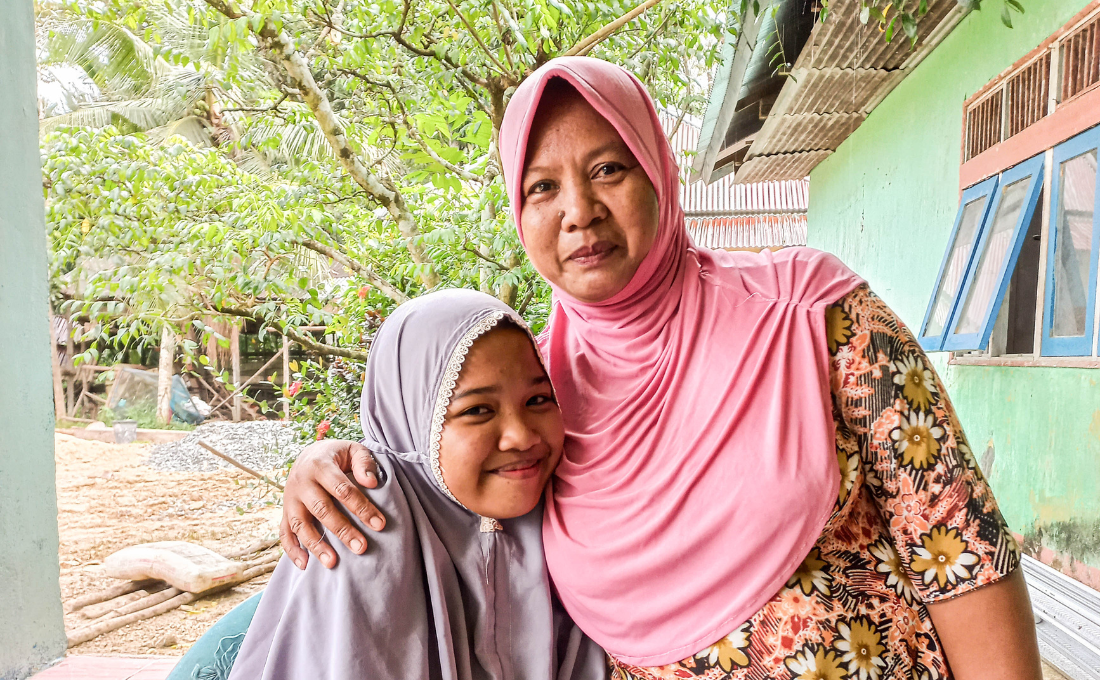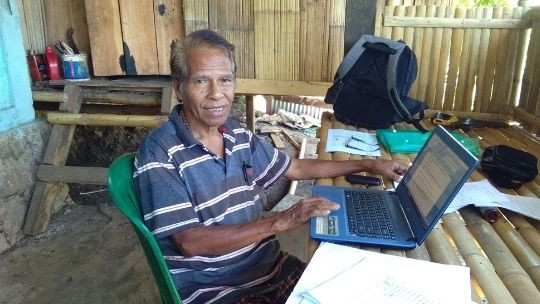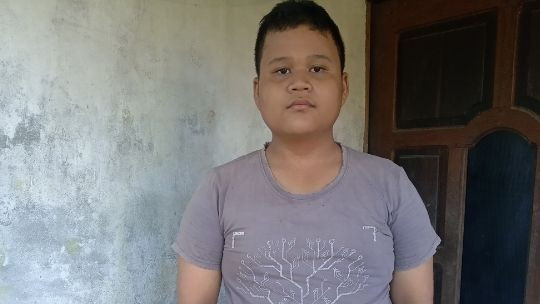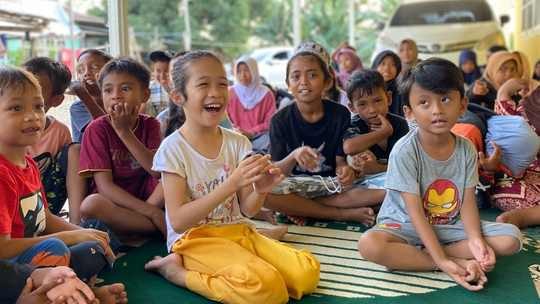It’s Fun to Talk Heart to Heart with My Parents

The kitchen is one of Febri and Bu Mardiyah's favorite place to exchange stories. While helping each other cooking dinner, this daugther and mother chat about their activities that day. Bu Mardiyah talked about her Quran recitation activities, while Febri talked about his activities at school. The chat continued until the food was ready and the whole family sat together at the dining table.
The atmosphere of Bu Mardiyah's house feels warmer and more intimate because there is openness between parents and children. Now, the house feels like home. Before, let alone exchanging stories, eating together at home was rare. "Now we can have time to pray together, eat together too. We used to eat inside this house but individually," said the mother of four children.
Febri is Bu Mardiyah's second child who is now 16 years old. As a teenager, Febri had difficulty communicating with his father and mother. Especially when his mother was angry and said words that hurt her. "What Febri most unhappy about is that when Mamak (mom) is angry, she likes to talk things that irritates me, like bringing up about my age. So it makes my heart hurt, doesn't Mamak think about my feelings until she can say something as hurtful as that," Febri recalled. But now, after Bu Mardiyah was diligently involved in Quran recitation activities combined with PDC (Parenting with Love), Febri's beloved mother has changed.
Raising and educating four children is certainly a big challenge. The different characteristics of each child also often make Bu Mardiyah feel lost about what kind of discipline is right for each of her children. Not to mention, other tasks as a housewife also put pressure on her. As a result, Bu Mardiyah felt confused about the right pattern of disciplining her children while also tired of doing endless household chores.
"It used to be difficult to ask my children to help me in the kitchen. I felt that these children were stubborn. If I ordered them, they wouldn't listen. So I would get angry, my tone was loud, my voice was a bit high," said Bu Mardiyah. After attending PDC sessions at the recitation center, Bu Mardiyah was taught how to communicate, not only to discipline her children, but also to establish openness with her children. "The process is not spontaneous. Slowly. I started talking like this to the children: Dek (child), please be understanding with Mamak. Mamak is tired of working in the fields, later Mamak needs find grass to feed the cattle. Bapak (dad) is also not always at home. So please divide the tasks. You cooks, sweeps. Your younger sister, please help Mamak wash the dishes," said Bu Mardiyah.
Since trying to practice a more stable way of communicating, Bu Mardiyah's children have opened up to be closer to their parents. "Now we are very happy to be very close to Mamak. I want to continue like this because there's nothing to hold back, nothing to hide," said Febri. Bu Mardiyah also felt the same way, "It's nice to be closer to the children. The children also don't feel forced. They can tell me anything they want,".
Bu Mardiyah and Febri are examples of families in the WVI assisted area in Bengkayang Regency, West Kalimantan who have experienced relationship transformation. This happened because Bu Mardiyah followed and applied the Parenting with Love material which focused on positive parenting. Based on WVI's data and analysis, improving the relationship between parents and children is one of the things that can reduce violence against children. In fact, if the relationship between daughters and fathers can be changed, this will have an effect in reducing child marriage. Therefore, WVI together with partners at various levels continue to apply the PDC approach to parents and children in remote areas. The hope is that more Indonesian children will grow up in families that care for and love each other like Bu Mardiyah and Febri.
Author: Mariana Kurniawati (Communication Executive)
Contributor: Bengkayang Area Project team



